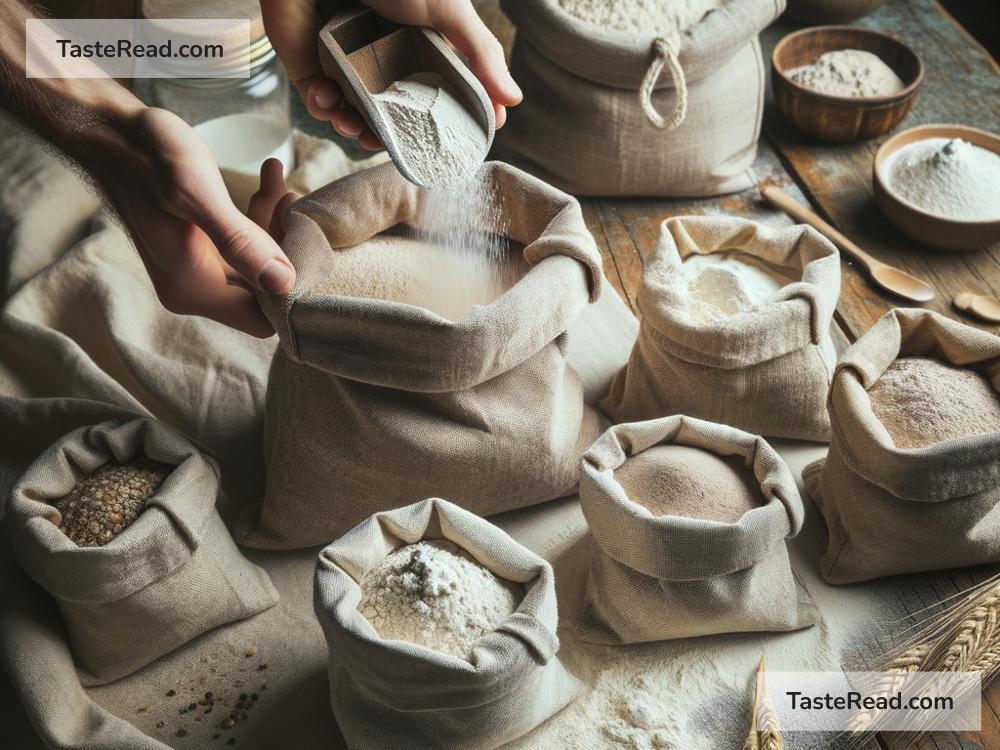How to Source Sustainable Baking Flours
Are you passionate about baking but also want to make choices that are better for our planet? You’re not alone! A growing number of people are looking for ways to create delicious food while also caring for the environment. One step in the right direction is choosing sustainable baking flours. But what does that mean, and how can you find them? Let’s break it down into simple, actionable steps.
What Does Sustainable Mean?
First things first, “sustainable” refers to practices that can be maintained without depleting natural resources or harming the environment. When it comes to food, sustainability might include how a crop is grown, how far it travels to get to you, and how it’s processed and packaged. Choosing sustainable options helps ensure that we’re not only taking care of our health but also the health of our planet.
Why Choose Sustainable Baking Flours?
Conventionally grown and processed flours can have a significant environmental footprint. They might involve heavy use of pesticides, long transportation distances, and energy-intensive milling processes. Sustainable flours aim to reduce these impacts through organic farming, local sourcing, and minimal processing. By choosing these flours, you’re voting for a healthier planet with every bake.
How to Source Sustainable Baking Flours
1. Look for Organic Options
Organic flours are made from grains that have been grown without synthetic pesticides or fertilizers. This practice is better for the soil and local ecosystems. Most grocery stores now carry organic flour, so it’s a good place to start. Check labels for official organic certification to ensure you’re getting the real deal.
2. Go Local
Flour milled from locally grown grains can significantly reduce the environmental impact related to transportation. Find out if there are any grain farms or mills in your area. Farmers’ markets and local food co-ops are great places to look. Buying local not only reduces your carbon footprint but also supports the local economy.
3. Explore Ancient and Heirloom Grains
Ancient grains like quinoa, amaranth, and spelt, as well as heirloom varieties of wheat, are often grown in more sustainable ways and are adapted to local conditions, requiring fewer inputs. They also offer a variety of flavors and nutritional profiles. Exploring these grains can add diversity to your baking and support sustainable agriculture practices.
4. Bulk Buying with Minimal Packaging
When possible, buy your flour in bulk with minimal packaging. This reduces waste and often allows you to save money in the long run. Many health food stores and co-ops offer bulk purchasing options. Remember to bring your own container or bag to make the process even more sustainable.
5. Research Brands Committed to Sustainability
Some brands are committed to sustainability in all aspects of their production, from how they grow their grains to how they package their flour. Do a bit of research online to find which companies have sustainable practices you want to support. Look for transparency in sourcing, energy use, and social responsibility.
6. Consider Milling Your Own
If you’re really committed to the cause, you might want to consider milling your own flour. Home milling machines are available and allow you to buy whole grains (which are more likely to be available from local and sustainable sources) and mill them as needed. This can be more energy-efficient and gives you complete control over the final product.
7. Online Options for Hard-To-Find Flours
For some, finding sustainable flours locally might be challenging. The good news is that many small mills and farms ship their sustainably sourced flours. While this does involve transportation, buying in bulk can minimize the impact. Plus, you’re supporting sustainable practices and smaller operations.
Every Choice Counts
Sourcing sustainable baking flours might seem like a small step, but if many of us make this choice, it can lead to significant positive impacts for our planet. Remember, every little action adds up. By choosing sustainable flours, you’re not only enhancing the quality of your baked goods but also contributing to a more sustainable and healthier world for future generations.
Start with one change, maybe by picking up a bag of organic flour or trying out a new grain. As you become more comfortable, explore other ways to make your baking practices more sustainable. Happy baking!


